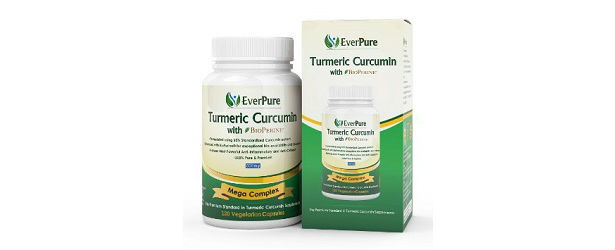
Why You Should Eat Turmeric
Turmeric is loaded with antioxidant compounds, including its primary active constituent curcumin which is believed to neutralize age-accelerating free radicals. Used for thousands of years in Asian culinary and wellness traditions, turmeric has many benefits including aiding in joint comfort, promoting razor-sharp brain health, boosting immune performance and more. Research is now showing what countries such as India and Sri Lanka have long known — that this yellow spice has more benefits than boosting food flavor. Used for more than 4000 years to treat a variety of ailments, curcumin — the active ingredient in turmeric — could possibly fight off dementia and prevent cancer.
 Cancer researchers believe that turmeric and its consumption has a great positive effect on cancer and dementia diseases. Turmeric is a natural anti-inflammatory, it inhibits the growth of new blood vessels in tumours and it’s a powerful antioxidant. Unfortunately, a lot of the studies have not been conducts on humans. They have been done on animals and test tubes. However, because it’s been used in Chinese and Indian medicine for a long time it is generally accepted as having the health benefits below.
Cancer researchers believe that turmeric and its consumption has a great positive effect on cancer and dementia diseases. Turmeric is a natural anti-inflammatory, it inhibits the growth of new blood vessels in tumours and it’s a powerful antioxidant. Unfortunately, a lot of the studies have not been conducts on humans. They have been done on animals and test tubes. However, because it’s been used in Chinese and Indian medicine for a long time it is generally accepted as having the health benefits below.
1. Fights off Alzheimer’s disease
Researchers believe that curcumin’s antioxidant and anti-inflammatory properties may be strong enough to break down the plaques in the brain that contribute to Alzheimer’s disease.
2. Helps to prevent cancer
There are at least 30 studies showing that curcumin may have an anti-tumour effect either reducing the number or size of tumours or the percentage of animals who developed them. Note — these are not human studies and more human research is definitely needed.
3. Reduces the risk of heart attacks and strokes
Curcumin also has a positive effect on cholesterol. Animal studies have shown that it may help lower cholesterol and prevent the build-up of LDL (“bad” cholesterol) in the blood vessels.
 4. Combats inflammatory diseases
4. Combats inflammatory diseases
Turmeric’s natural anti-inflammatory qualities mean it may work as well as some anti-inflammatory medications, without the side effects. Early research shows it may help with inflammation of the eye (uveitis), inflammatory bowel disease (ulcerative colitis) and multiple sclerosis.
5.Fights colds and flu
Preliminary studies show that turmeric may help reduce the severity of bacterial and viral infections.
6. Helps with digestion and weight loss
Curcumin stimulates the gallbladder and produces bile. Because bile helps digest fat, experts believe this improves digestion and may help control weight. At least one study found it treats indigestion, reducing symptoms of bloating and gas.
7. Assists diabetes sufferers
Turmeric may improve glucose control or insulin activity; in animal research it was shown to cause blood sugar levels to drop. If you add turmeric to your diet make sure to keep monitoring your blood sugar levels with your doctor.
How do I take it?
Turmeric can easily be added to your diet. There are also many health supplements available. A word of caution — There are a variety of products on the market and sorting through them and selecting the best one for your needs can be confusing. Many companies trying to cash in on trends do not really care about the quality of their product, therefore their products may be ineffective.
TOP 5
TURMERICSupplements |
|||||
| Turmeric Curcumin Premium | NutriDosha | Source Naturals Turmeric | Sandhu's Curcumin C3 Complex | EverPure Turmeric Curcumin | |
|---|---|---|---|---|---|
| 1 | 2 | 3 | 4 | 5 | |
| Price (1 bottle) Price (6 bottles) Best Value |
$48.00 $138.00 |
$37.50 $225.00 |
$34.50 $207.00 |
$29.95 $179.70 |
$24.47 $146.82 |
| Overall Rating | 99.50% | 84.30% | 81.00% | 73.50% | 69.50% |
| Effectiveness |





|





|





|





|





|
| Speed of Results | Extremely Fast | Good | Good | Average | Average |
| Quality of Ingredients | Premium | Good | Average | Average | Average |
| Customer Satisfaction Evaluation | 99.20% | 86.30% | 81% | 73% | 70.30% |
| Safety Evaluation | Safe for Use | Safe for Use | Safe for Use | Safe for Use | Safe for Use |
| Customer Service Rating |





|





|





|





|





|
| Reorder Rate | Highest | Good | Good | Average | Average |
| Return Policy | Risk Free | No | Unclear | No | Unclear |
| Success Rate | 99.40% | 86.20% | 81% | 74.50% | 69% |

 Subscribe Now
Subscribe Now










